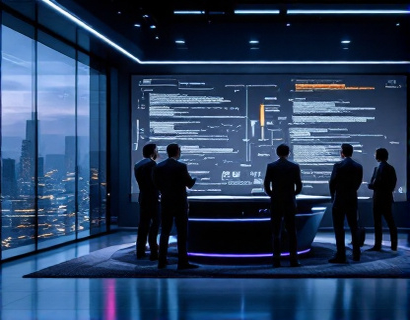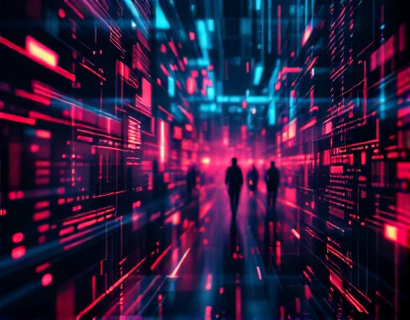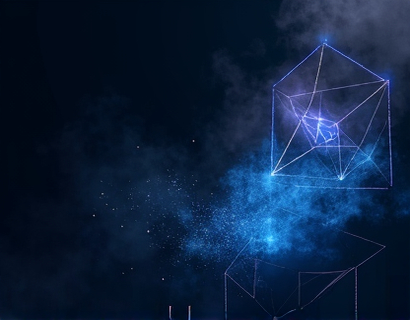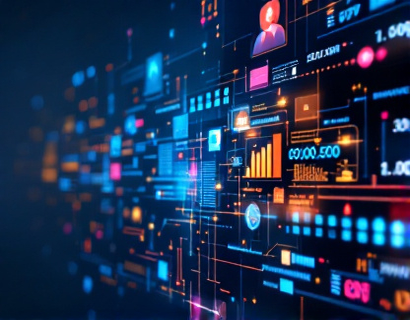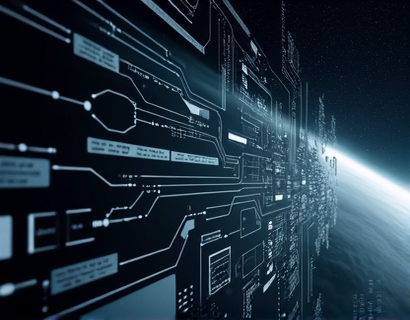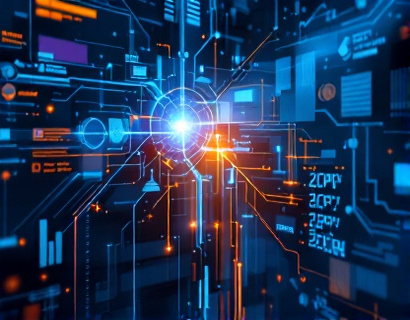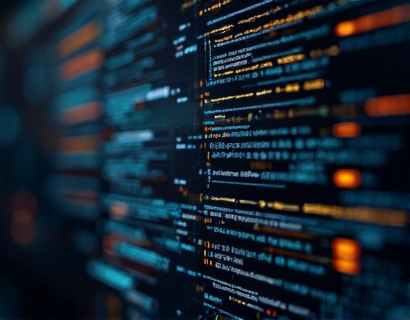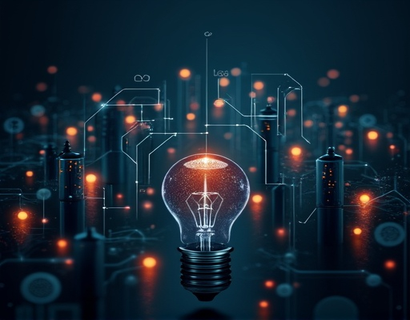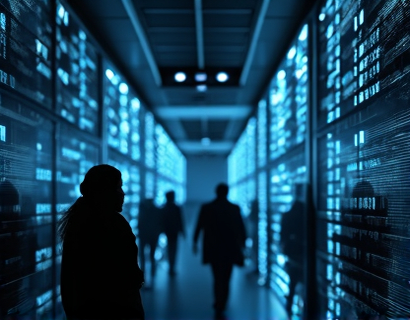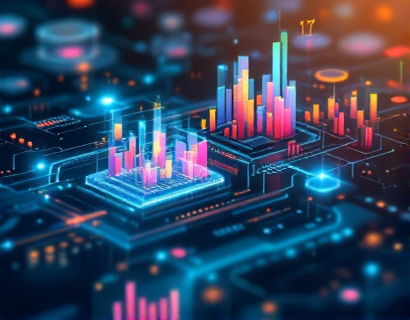Unlocking the Future: Leveraging Crypto and AI for Next-Gen Ucosystem Applications
The intersection of cryptocurrency and artificial intelligence (AI) is giving birth to a new era of technological advancements, redefining how we interact with digital ecosystems. This convergence, often referred to as BlockchainAI, is opening up unprecedented opportunities for tech-savvy innovators and early adopters. In this guide, we will delve into the transformative potential of this synergy, exploring how it is reshaping the landscape of blockchain and AI-driven applications.
Understanding the Convergence of Crypto and AI
The fusion of cryptocurrency and AI is not merely a technological curiosity but a powerful combination that leverages the strengths of both domains. Cryptocurrency, with its decentralized and secure nature, provides a robust foundation for building trustless and transparent systems. AI, on the other hand, brings in the capability to process vast amounts of data, learn from patterns, and make intelligent decisions. When combined, these technologies can create applications that are not only secure and efficient but also highly adaptive and intelligent.
Enhanced Security through Crypto and AI
One of the most significant benefits of integrating crypto and AI is the enhancement of security measures. Traditional systems often rely on centralized authorities to manage and secure data, making them vulnerable to breaches and fraud. By utilizing blockchain technology, data is distributed across a network of nodes, ensuring that no single point of failure exists. AI can further bolster this security by detecting and mitigating threats in real-time. Machine learning algorithms can analyze patterns and anomalies, identifying potential security breaches before they occur. This proactive approach to security is crucial in an era where cyber threats are becoming increasingly sophisticated.
Smart Contracts and AI-Driven Automation
Smart contracts, self-executing contracts with the terms directly written into code, are a cornerstone of blockchain technology. When combined with AI, smart contracts can become even more powerful and versatile. AI can automate the execution of smart contracts based on complex conditions and real-time data analysis. For instance, in supply chain management, AI can monitor various parameters such as temperature, location, and quality, triggering smart contracts to execute payments or adjustments automatically when predefined conditions are met. This level of automation not only increases efficiency but also reduces the need for intermediaries, lowering costs and enhancing transparency.
Personalized User Experiences
The integration of AI in blockchain applications can lead to highly personalized user experiences. AI algorithms can analyze user behavior and preferences, providing tailored recommendations and services. In the context of decentralized finance (DeFi), AI can help users find the most suitable financial products and services based on their individual needs and risk profiles. This personalization extends to user interfaces and interactions, making blockchain applications more intuitive and user-friendly. For example, AI-driven chatbots can assist users in navigating complex blockchain ecosystems, providing guidance and support in real-time.
Decentralized Data Markets
One of the most promising applications of BlockchainAI is the creation of decentralized data markets. In these markets, users can monetize their data while maintaining control and ownership. AI plays a crucial role in ensuring the quality and relevance of data, filtering and curating it for various applications. Blockchain ensures that data transactions are secure, transparent, and compensated fairly. This model not only empowers individuals but also fosters a more democratic and inclusive data economy. Developers can build applications that leverage this data for insights and decision-making, creating a win-win scenario for all participants.
Supply Chain Transparency and Traceability
Supply chain management is another area where the combination of crypto and AI can drive significant improvements. By using blockchain to create an immutable and transparent ledger of transactions, every step in the supply chain can be tracked and verified. AI can enhance this process by analyzing data from various sources, predicting bottlenecks, and optimizing logistics. For instance, AI can forecast demand based on historical data and real-time market trends, helping companies adjust their inventory and production schedules accordingly. This level of transparency and efficiency can reduce costs, minimize waste, and ensure ethical sourcing practices.
Healthcare Innovations
The healthcare sector stands to benefit immensely from the convergence of crypto and AI. Patient data, when stored on a blockchain, can be securely shared among healthcare providers, ensuring that patients receive coordinated and high-quality care. AI can analyze this data to identify patterns, predict disease outbreaks, and personalize treatment plans. Additionally, AI-powered chatbots and virtual assistants can provide patients with immediate support and guidance, reducing the burden on healthcare professionals. The use of cryptocurrencies can also facilitate seamless and secure transactions for medical services and prescriptions, enhancing the overall patient experience.
Financial Inclusion and Microfinance
Blockchain and AI can play a pivotal role in promoting financial inclusion, particularly in underserved regions. Decentralized financial platforms can provide access to financial services without the need for traditional banking infrastructure. AI can assess creditworthiness and risk in a more inclusive manner, considering alternative data sources such as social media activity and mobile usage patterns. This approach can help microfinance institutions extend credit to individuals who are traditionally excluded from the financial system. Smart contracts can automate loan disbursements and repayments, ensuring that transactions are executed efficiently and transparently.
Art and Digital Creativity
The creative industry is also witnessing a transformation through the integration of crypto and AI. Digital art, for example, can be authenticated and owned using blockchain, ensuring that artists receive fair compensation for their work. AI can assist in the creation of art, generating unique pieces based on various styles and inputs. This collaboration between human creativity and machine learning can lead to innovative and boundary-pushing artistic expressions. Additionally, AI can help artists manage their portfolios, identify trends, and connect with potential buyers, expanding their reach and impact.
Challenges and Considerations
While the potential of BlockchainAI is vast, there are several challenges and considerations that must be addressed. Scalability remains a significant issue, as both blockchain and AI require substantial computational resources. Ensuring that these systems can handle large-scale operations without compromising performance is crucial. Privacy concerns also need to be carefully managed, as the combination of blockchain and AI involves handling sensitive data. Compliance with regulations and standards is essential to gain widespread adoption and trust. Moreover, the technical complexity of these systems can be a barrier for some users, necessitating user-friendly interfaces and educational resources.
Future Outlook
The future of BlockchainAI is bright, with ongoing research and development poised to unlock even more innovative applications. As the technology matures, we can expect to see more seamless integrations and broader adoption across various industries. The synergy between crypto and AI has the potential to revolutionize not only how we interact with technology but also how we conduct business, manage data, and create value. For tech-savvy innovators and early adopters, this is an exciting time to explore and contribute to this evolving landscape.
In conclusion, the convergence of cryptocurrency and AI is paving the way for a new generation of blockchain and AI-driven applications. By leveraging the strengths of both technologies, we can build more secure, efficient, and intelligent systems that transform the digital ecosystem. Whether it's enhancing security, personalizing user experiences, or promoting financial inclusion, the possibilities are endless. As we continue to push the boundaries of what is possible, the future of technology looks more promising than ever.




